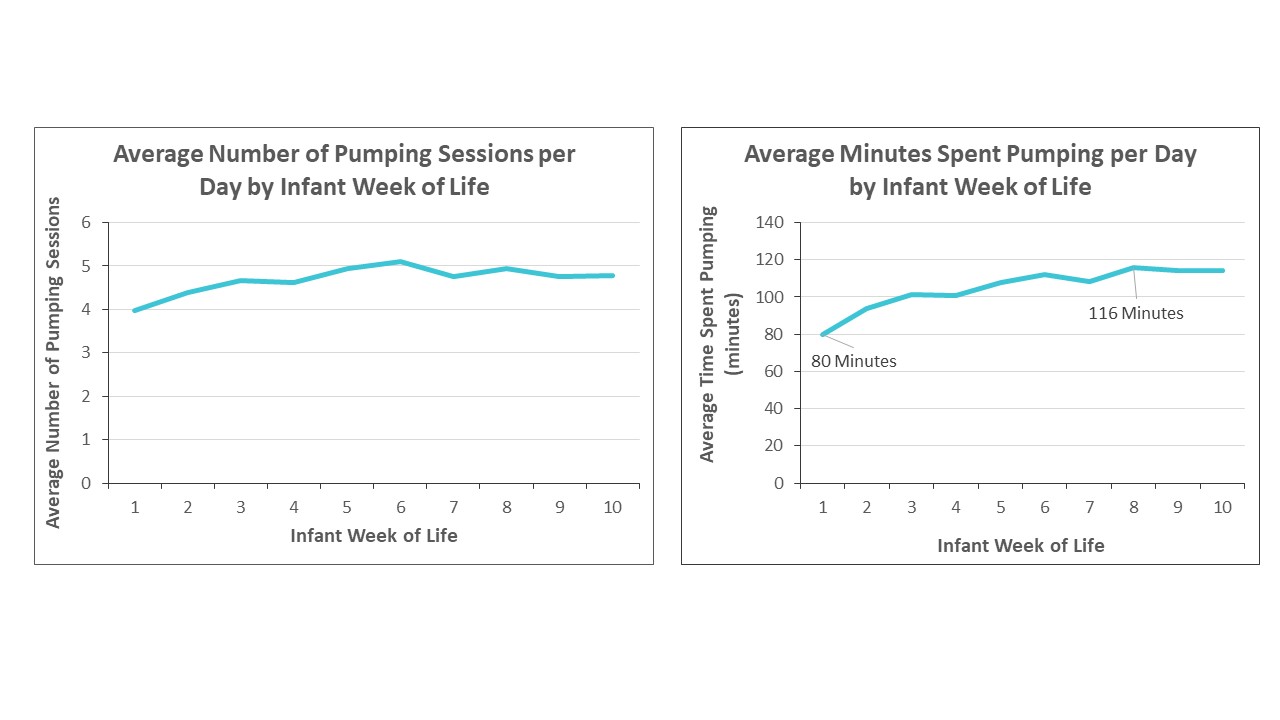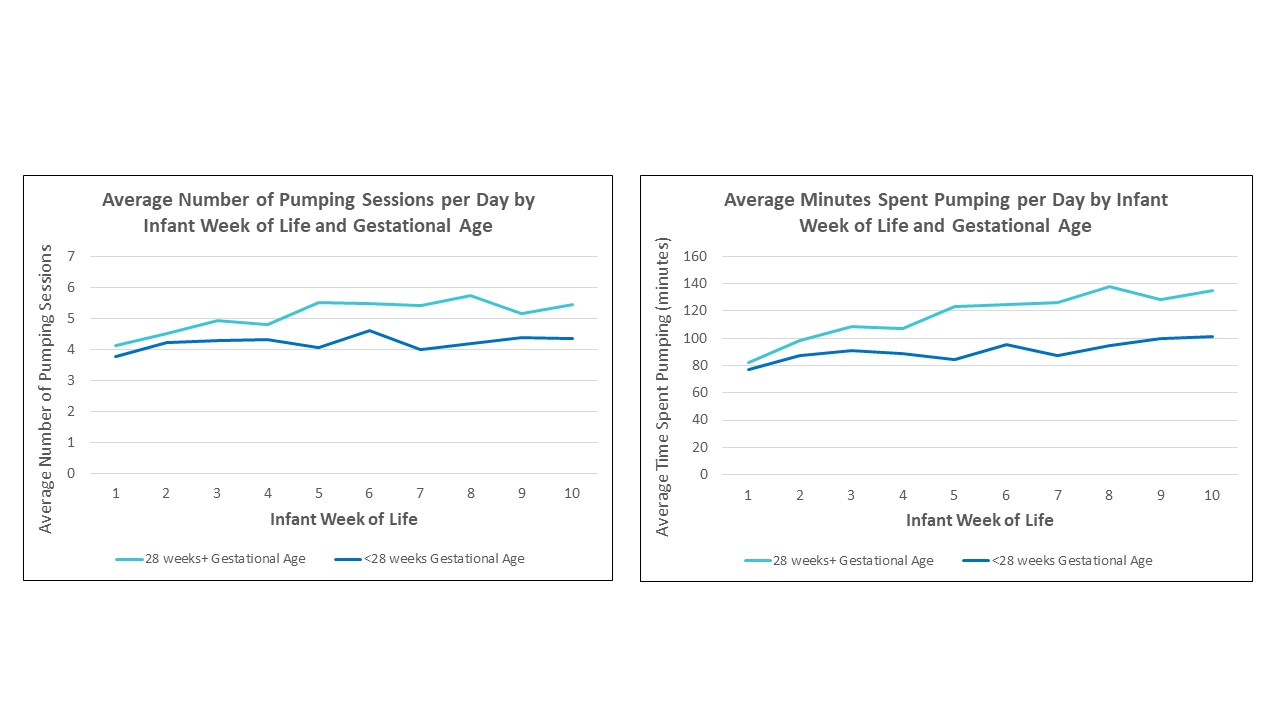Breastfeeding/Human Milk
Breastfeeding/Human Milk 4: Breastfeeding and Milk Provision
39 - Where does the time go? Variation in maternal pumping behaviors by gestational age in the ReDiMOM study of very preterm infants
Saturday, April 29, 2023
3:30 PM - 6:00 PM ET
Poster Number: 39
Publication Number: 39.202
Publication Number: 39.202
Aloka L. Patel, Rush Medical College of Rush University Medical Center, Chicago, IL, United States; Amelia Tan, Rush Medical College of Rush University Medical Center, Hinsdale, IL, United States; Judy E. Janes, Rush Medical College of Rush University Medical Center, Chicago, IL, United States; Amelia Bucek, RUMC, Chicago, IL, United States; Delaney Mulcahy, Rush University Medical Center, Chicago, IL, United States; Katherine McGee, Rush University Medical Center, Westchester, IL, United States; Paula Meier, Rush Medical College of Rush University Medical Center, Oak Park, IL, United States; Tricia J. Johnson, Rush University, Chicago, IL, United States

Aloka L. Patel, MD (she/her/hers)
Chief, Division of Neonatology
Rush Medical College of Rush University Medical Center
Chicago, Illinois, United States
Presenting Author(s)
Background: Mothers of very preterm (< 32 weeks gestational age [GA]) infants are breast pump dependent and have shorter duration of milk provision than mothers of term infants. The opportunity (i.e., time) cost of pumping and transporting mother’s own milk (MOM) from home to the NICU may be a barrier. There is a paucity of data regarding how much time mothers actually spend pumping. ReDiMOM (Reducing Disparities in Receipt of Mother’s Own Milk) is an NIH-funded randomized controlled trial at Rush University Medical Center that includes a 3-part intervention bundle to offset out-of-pocket and opportunity costs of MOM provision, including a hospital-grade breast pump, transportation of the milk, and payment for time spent pumping.
Objective: To investigate the variation in time spent pumping by postpartum week and infant gestational age.
Design/Methods: Prospectively collected pump log data from mothers included pumping date, start time and end time. Outcomes included average number of daily pumping sessions and number of minutes spent pumping for each postpartum week, and univariate statistics were used to describe outcomes by (1) postpartum week, and (2) gestational age and postpartum week.
Results: Data included 11,462 pump sessions from 45 mothers. Maternal characteristics included 36% < 30 years old, 64% ≥30 years old; and 18% White, 46% Black, 29% Hispanic, and 7% another race. The majority (58%) of infants were born at GA 28-31 weeks. Mothers pumped an average of 4-5 times per day (Figure 1). There was a gradual increase in minutes spent pumping per day as lactation progressed: 80 daily minutes in week 1 to 116 daily minutes in week 8 (Figure 1). Mothers with less mature infants (< 28 weeks) had fewer daily pumping sessions and minutes spent pumping than mothers of more mature infants (Figures 2).
Conclusion(s): On average mothers pumped less intensively than the minimum recommendation of 8 times and 100 minutes per day. However, these pumping behaviors represent significant maternal opportunity costs that should be valued by the institution and society at large.


